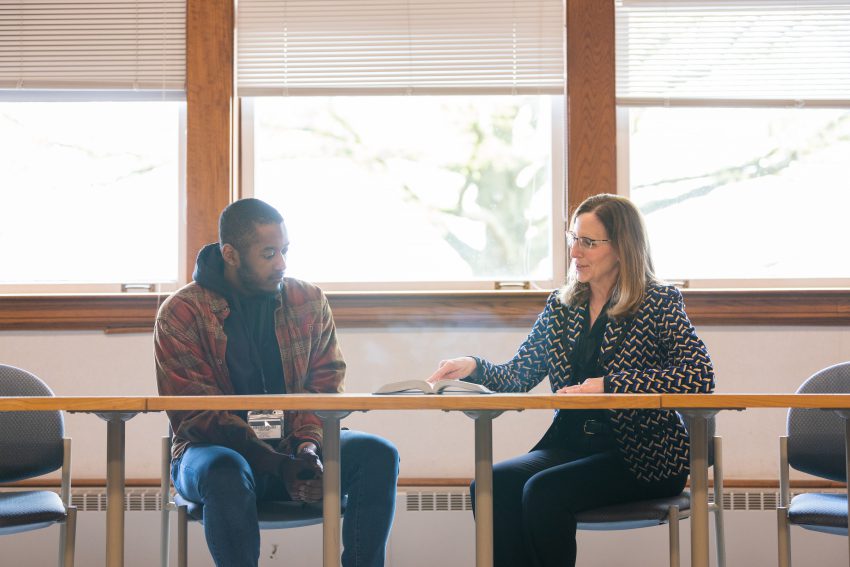I heard a knock at the front door of our house we had just moved into in Sewickley, Pa. We had moved from Franklin, Tenn., and were grieving the familiar of what we had left and were apprehensive about what we might find in this new place. I opened the door to see a woman with a smiling face, arms opened wide, saying, “Welcome, neighbor!” Although she didn’t know us, she already saw us as neighbors. That simple gesture marked a transition, giving me hope to see this house as home, giving me eyes to see strangers as neighbors.
A Biblical Understanding of “Neighbor”
“Who is my neighbor?” an expert in the law asked Jesus. He asked because he wanted to know how to inherit eternal life. He knew what the law said: “You must love the Lord your God with all your heart and with all your soul and with all your strength and with all your mind and love your neighbor as yourself.” He knew the law, but wasn’t sure how to live it, especially the last part: love your neighbor as yourself. And so he asked, “who is my neighbor?”
As the Gospel of Matthew reports, Jesus answered with a parable: “A man was going down from Jerusalem to Jericho and fell into the hands of robbers, who stripped him, beat him, and took off, leaving him half dead” (10:30). Jesus goes on to tell the story of those who followed after him on this road—a priest and Levite—who passed by on the other side without stopping. A Samaritan came next. He bandaged the wounds of the beaten man and took him to an inn and paid the cost for him to rest and recuperate, and be cared for. Then, Jesus asked the legal expert, “Which one was a neighbor to the man in need?” The legal expert said, “The one who showed him mercy.” (10:36-37).
Seeing the World as God Does
What made the Samaritan show mercy? The answer is found in one verse: “But when he saw him, he was moved with compassion” (10:33). When he opened his eyes beyond preconceived notions of a Jew, this Samaritan was moved to compassion. The caring act came after he saw the injured man, not as a threat or a bother, or unclean or unworthy, but as a neighbor in need. This is how we love God and love neighbor.
Abraham Joshua Heschel described it like this: “Worship is a way of seeing the world in the light of God.” We worship and love God when we can see the world—and all those in it—in the light of God’s loving gaze.
We love neighbor when can open our eyes and see those who are different from us as neighbors. Poet Maya Angelou put it like this: “It’s very important to know the neighbor next door and the people down the street and the people in another race.”
Jesus said it like this: “Go and do likewise.” (10:37) How? He gave us the key: it begins by seeing and knowing people as neighbors.
Neighbors in the Doctor of Ministry Program
At Pittsburgh Seminary, we seek to participate in God’s ongoing mission in the world by seeing and getting to know people as our neighbors. One of our distinguished alums—our patron saint, as we like to call him, “Mister” Fred Rogers—created a television neighborhood in which he welcomed everyone of any age, race, class, and creed. He sang, “I have always wanted to have a neighbor just like you!”
Challenged by Jesus’ parable of the good Samaritan and inspired by Mister Rogers’ spirit, I am writing this blog to introduce you to some of my neighbors, whom I want you to know. Over the next several months in this space, we will introduce you to some of our students in various cohorts of our Doctor of Ministry program from our various cohorts. They are from the north, south, east, and west. They work with diverse populations, whom they have come to see as neighbors and care for lovingly. I hope by the end of this series, you will get to know our Doctor of Ministry students, their ministries, as well as see those whom they serve as siblings in Christ, as neighbors near and far, to whom someday you may be able to say, “Welcome, neighbor!”
The Rev. Dr. Donna Giver-Johnston is the director of the Doctor of Ministry program at PTS and a Minister of Word and Sacrament in the PC(USA).


